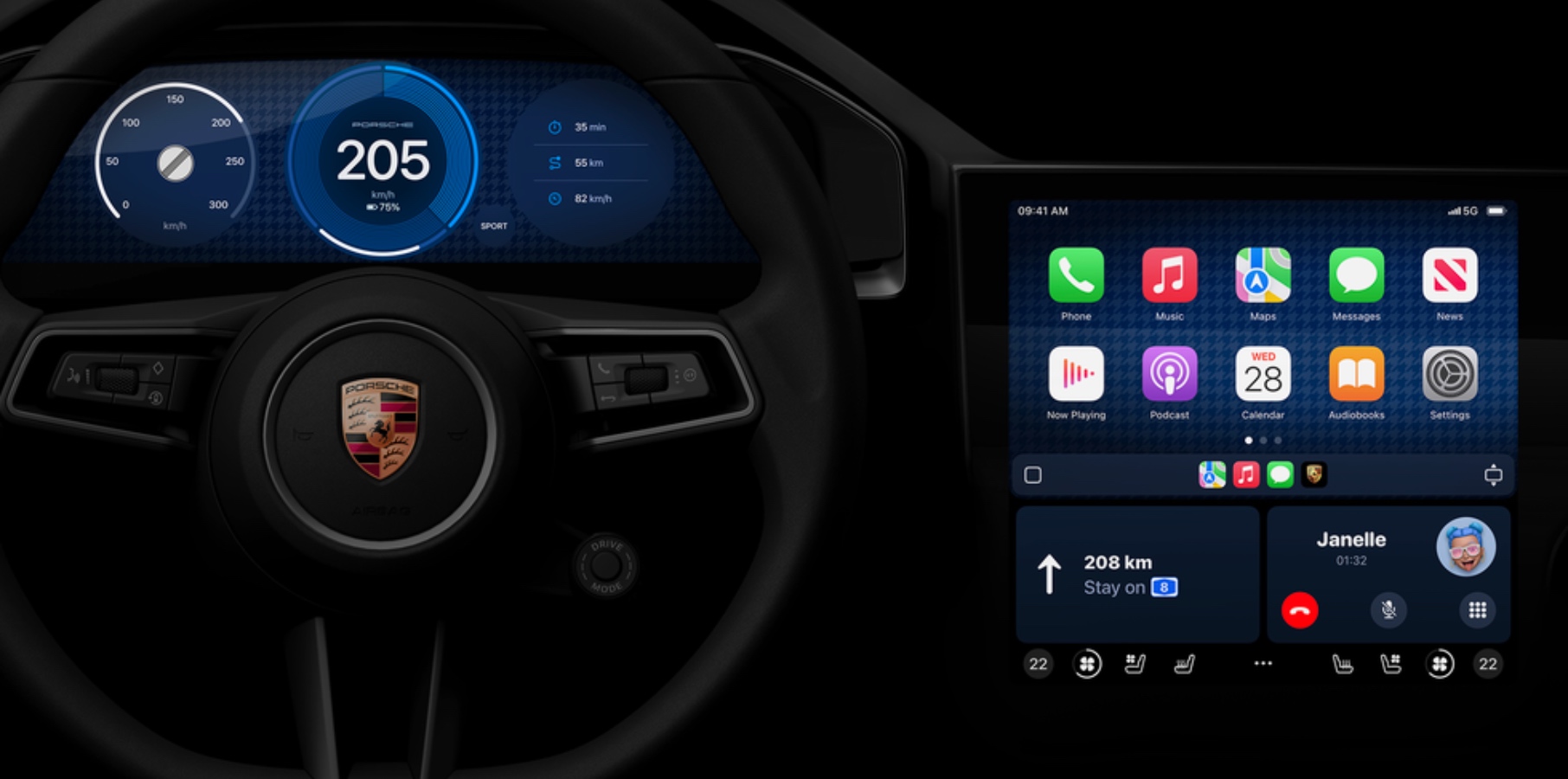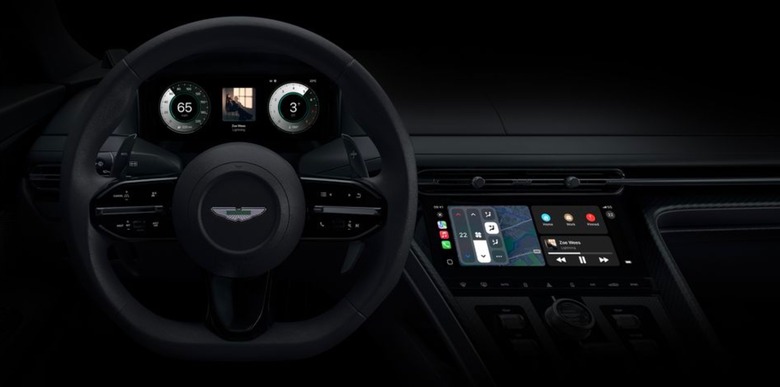Next-Gen CarPlay Coming To Aston Martin And Porsche Cars In 2024
Eleven days before 2023 ends and the first cars that will run the next-gen CarPlay have actually been announced. As reported by Car and Driver, Apple is working with Porsche and Aston Martin to bring the iOS 16-announced next-gen CarPlay to its high-end performance vehicles.
As teased during the WWDC 2022, the next generation of CarPlay will cover all of a driver's screen for a cohesive experience. This new version will be specific to each vehicle, "accommodating unique screen shapes and layouts" with new levels of personalization, allowing drivers to choose their gauge cluster design, including brand-specific options.
Now, with iOS 17 in mid-cycle, it seems some people will actually be able to experience Apple's vision for cars in 2024. According to the publication, Porsche's CarPlay interface will feature "a trio of circular gauges in the cluster and a background wallpaper that mimics the brand's distinct houndstooth."

For Aston Martin, its cluster includes "a central information screen bookended by a circular speedometer and tachometer, the latter of which integrates Handbuilt in Great Britan wraparound text."
While the next-gen CarPlay will still need an iPhone to share app-related information, the system will still rely on the host vehicle for driving-specific data. Car and Driver notes that Apple doesn't store any of this driving-specific data.
At the moment, Porsche hasn't said when this CarPlay experience will come to its new cars, but Aston Martin will add this infotainment system in 2024 with the DB12 coupe and DB12 convertible.
Interestingly, this news comes a few days after GM explained why it's offering a built-in experience, despite still supporting CarPlay and Android Auto.
To Motor Trend, Tim Babbitt, GM's head of product for infotainment, said that driver distraction caused by cell phone usage behind the wheel is a major concern for the automaker – and one of the reasons why it's planning to offer its own technology.
"CarPlay and Android Auto have stability issues that manifest themselves as bad connections, poor rendering, slow responses, and dropped connections. And when CarPlay and Android Auto have issues, drivers pick up their phones again, taking their eyes off the road and totally defeating the purpose of these phone-mirroring programs," explains the executive to the publication.
BGR will keep following the latest news on the next-gen CarPlay, and we'll let you know once it arrives.
